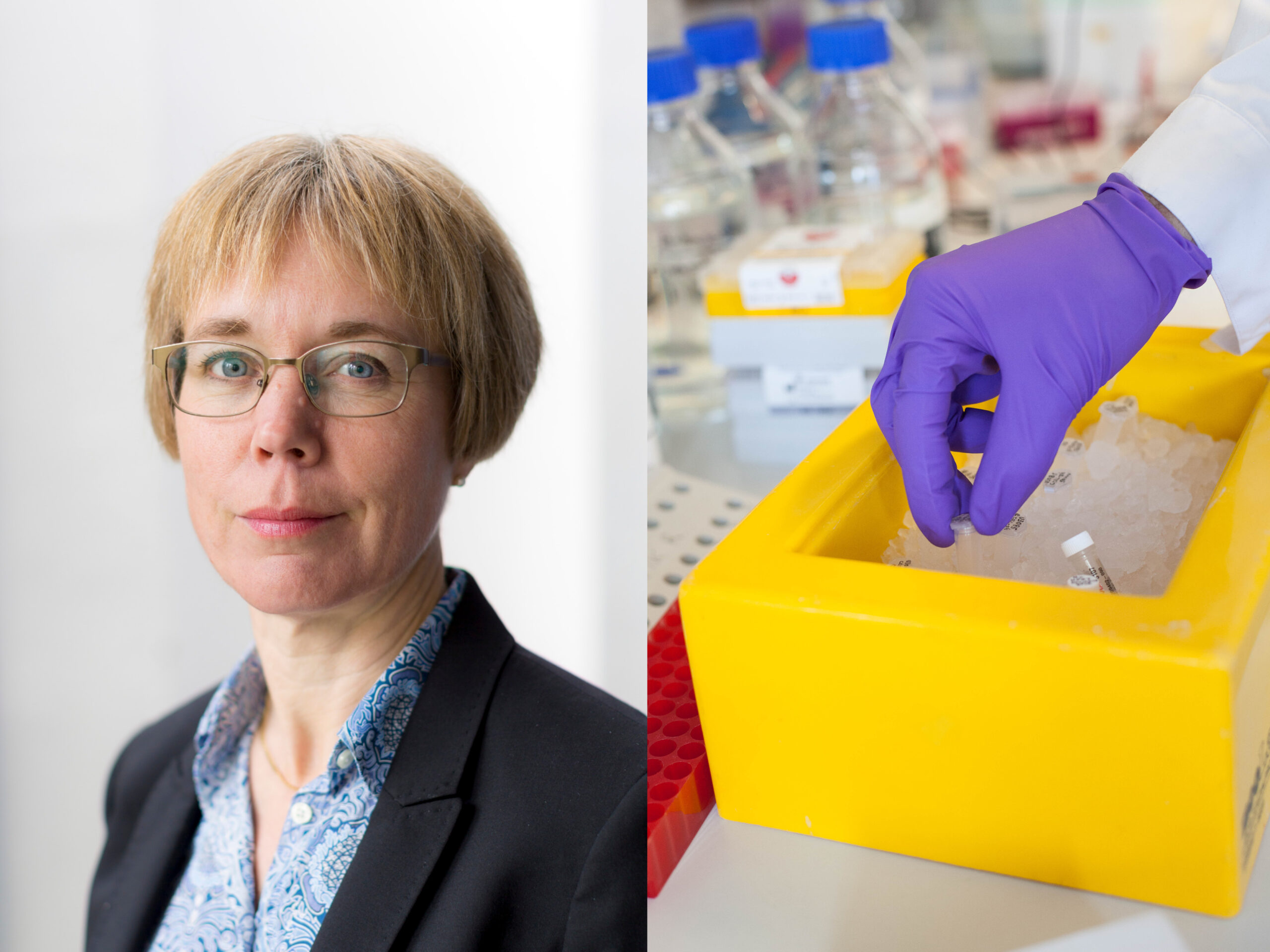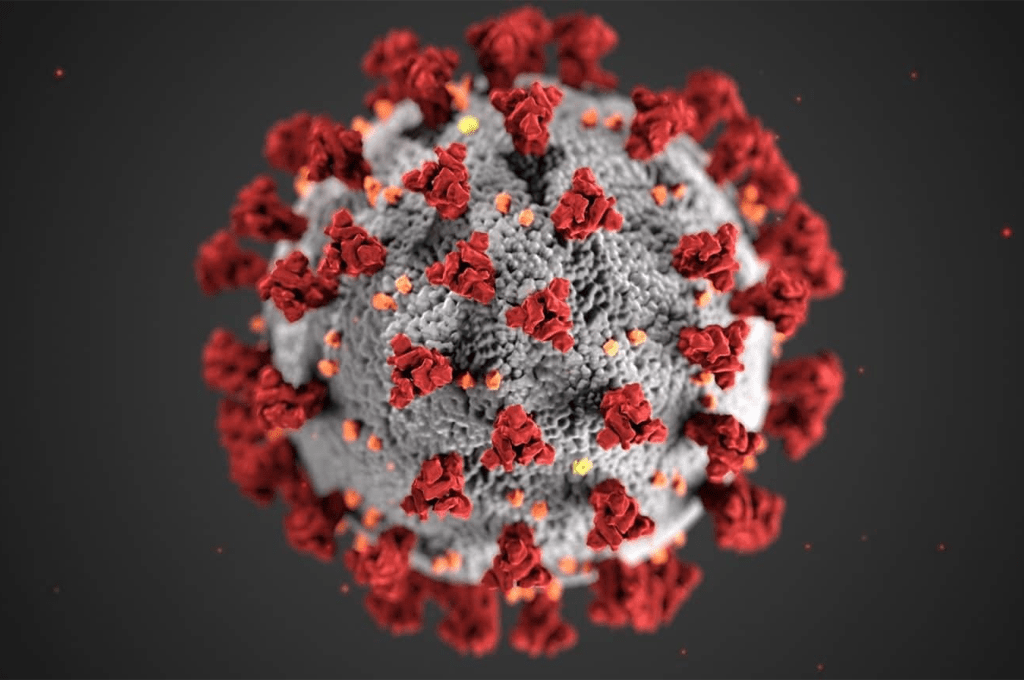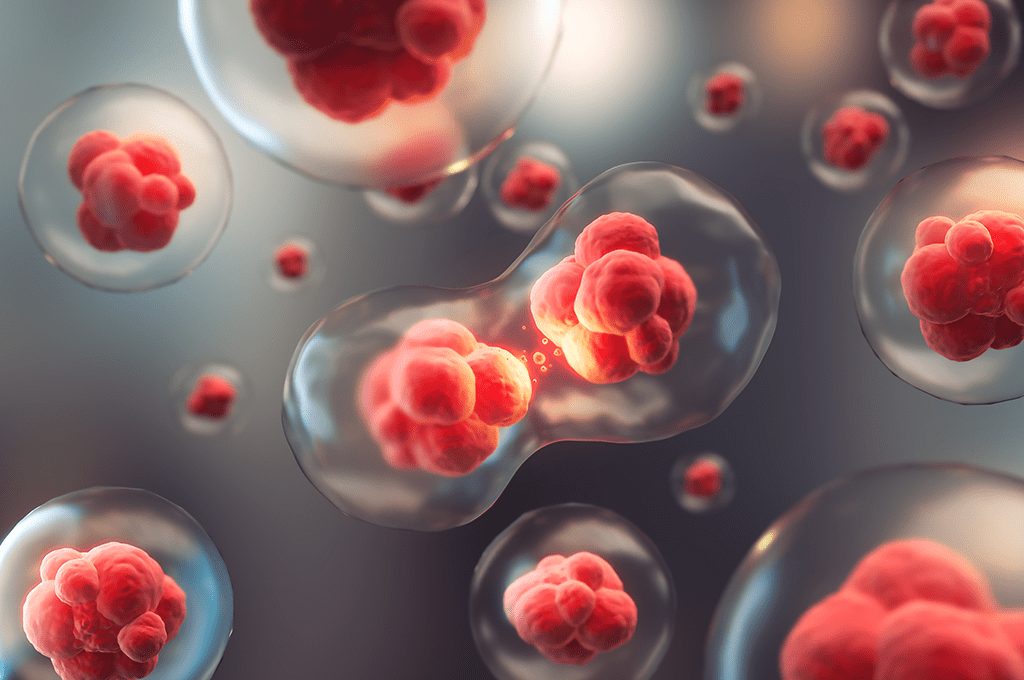Laying the foundation for a precision medicine approach to treat glioblastoma – a SciLifeLab National Sequencing Project

Five months ago, a glioblastoma sequencing study led by Professor Karin Forsberg Nilsson was granted funding through the SciLifeLab National Projects initiative. We met her at the Rudbeck Laboratory in Uppsala to learn more about the team’s work to advance the knowledge of this particularly aggressive form of brain cancer.
A few weeks ago, the very first samples from the novel glioblastoma study were sent off for whole genome sequencing performed by the SciLifeLab National Genomics Infrastructure. By analyzing the DNA in blood samples, tumor tissue and cultured cells from glioblastoma patients, Karin Forsberg Nilsson (Uppsala University) and her collaborators hope to provide new information needed to make substantial progress in developing effective treatment options.
“A cure for glioblastoma is still lacking and the average survival is fifteen months following diagnosis”, Karin Forsberg Nilsson underlines. “It is an extremely heterogeneous cancer disease, both when comparing patients to each other and different tumor cells from the same individual. This presents a major obstacle for potential treatments.”
To elucidate this heterogeneity, a cell bank containing cell lines from glioblastoma patients has been developed at Uppsala University by a group of PIs, including Karin Forsberg Nilsson. To date, samples from more than 100 patients have been included.
“Using stem cell culturing techniques, the consortium has successfully established cell lines from the individual glioblastoma tumors”, she says. “The whole genome sequencing at SciLifeLab now enables us to assess mutations also in non-coding regions of DNA. To be able to explore the functional consequences of any genetic alterations found in the patients’ tumors, we have matching cell lines from the same individual, which is a unique resource”.
This glioblastoma cell bank project serves a larger purpose than only supporting the scientific efforts of the contributing research groups (www.hgcc.se). Many labs around the world utilize the cell lines, both for basic research and drug development endeavors.
“It wouldn’t be possible to carry out this large-scale sequencing task without the support of SciLifeLab and the National Sequencing Projects initiative”, Karin Forsberg Nilsson emphasizes. “I believe SciLifeLab is an amazing resource for Swedish research and I was absolutely delighted to be given this opportunity. This project will make the glioblastoma cell bank resource even more valuable.”





